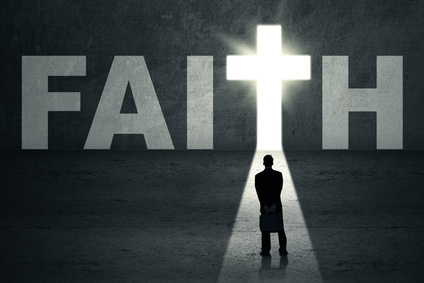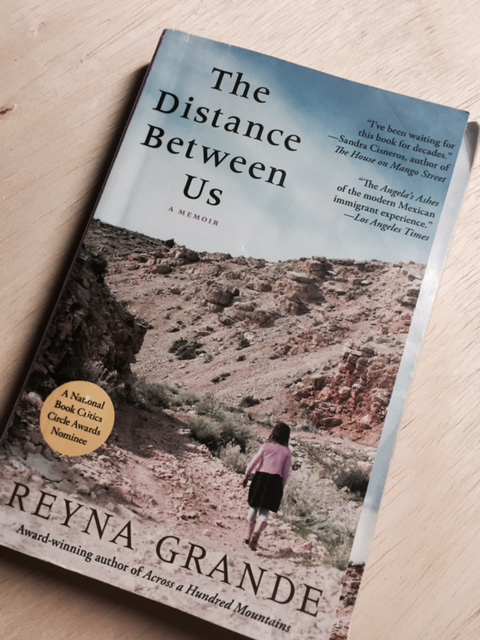Setting the stage for this post is rather simple. I was beginning my second year of graduate school at, what it was called at the time, Central Missouri State University, in Warrensburg, MO. Along came a new instructor for the theater department….
BACKGROUND…
John Wilson has been an instructor of theater at the University of Central Missouri (formerly known as Central Missouri State University) in Warrensburg, MO, for nearly 20 years.
He began in the fall of 2000, and in 2015 he became chair of what has now expanded to become the Department of Theatre and Dance at the university.
Before coming to the “little ‘ol town of the ‘Burg,” Wilson was an adjunct instructor at Colorado Christian University from 1997-1998. He directed two shows, Romeo and Juliet and Much Ado About Nothing, while teaching a few classes. “I taught a playwriting class, motivational drama – which studied a lot of motivational speeches in all genres of dramatic literature – and I taught a movement class.” he said.
He did this all while he was still working in a grocery story. “I was just starting to get experience where I could,” Wilson said. “But I was also professionally auditioning and got my equity card through the regional premiere of ‘Visiting Mr. Green‘ by Jeff Barron.”
He earned a Bachelor of Fine Arts in performance from Arizona State University in 1990. In the early 90s, he attended the National Theatre Conservatory in Colorado, obtaining a Master of Fine Arts in performance in 1993.
The purpose of this post, really, is to highlight Wilson’s book. You see, a few years ago he published his first book that took several years to create the idea, formulate that idea, and time to write the book – The Actor As Fire and Cloud.
THE GERMINATION OF AN IDEA…
In all his years as an educator and theater artist, Wilson was contemplating an idea. This idea was bringing Christian values and faith to the secular life. “It really happened ever since the enlightenment,” he began. “We get this idea you can have your sacred life and then there’s your public life. You can believe whatever you want, just keep it out of my business. Then this growing, silent agreement for the past 300 years that we don’t bring that sacred into certain professions and into certain work places.”
So the idea began forming more than 10 years ago, since about 2005-2006. He said it started as conversation pieces for trips and things with his wife, Jill, but then didn’t really get around to it until 2013. “So in 2013 I would have been in my 14th year of teaching,” Wilson said. “I could look back and realize I got a number of believing students come through the program and ask me all sorts of questions – ‘As a Christian, how do you feel about swear words?’ ‘As a Christian, how do you feel about sex as a topic in a scene?’ There’s a chapter where I kind of cover that. And it came from all those questions that I was fielding for quite a long time from students.”
Therefore, he contemplated further. His thinking – “I am a Christian, 24 hours a day, seven days a week.” He thought God has given him gifts and talents, so there must be a way to bring these things together, faith and craft. “I think God purposes us and equips us to do everything that we do. So part of it was looking for connections,” he said. “Being able to go into God’s word and try and find connecting dots and ligaments that help me make connections between faith and acting.”

But there was also another connection that had to do with his wife. Through their previous conversations, there was a time when Jill was in graduate school and her professors were having difficulty finding any kind of a textbook that dealt with those two items. “It just didn’t exist. They would be like read this book that’s kind of about this and then just try and translate it the best that you can. Or maybe read this article or what have you,” he said.
Then the real thought process and imagination spurred about writing this type of book about acting. He realized there wasn’t really anything on the market, so through conversations with his wife more ideas and thoughts stirred. Wilson said his wife was really the inspiration for the idea. “We bounced a lot of ideas off of each other,” he said. “I started writing when I was on sabbatical. I got through a show and some commercial work and then it was spring break in the educational calendar and I was like ‘I’m off until August.'”
IN THE BEGINNING…
So he set out to start writing. However, he has never written a book before. The process is somewhat similar to writing a thesis or other educational piece of writing. But with a book, it’s a little more grander in scale as far as content. “I think the writing process is similar. It’s just a matter of volume,” he said. “How much you’re writing when you write a book as opposed to a thesis or a paper. I felt the process was similar to how I would go about writing anything academic. I just needed to be really well organized about it. I needed to collect a lot of my resources. But I don’t think my approach was necessarily different than any other academic writing I’ve done. There’s just so much more to do.”

The idea for writing a book like this needed to actually be in the book. So eventually that material became the first chapter, he said. He set out to work and there would be short days of about eight hours, and his long days would be about 12 hours. He would explore the Bible and then work on a draft, completing a chapter, and then a lot of “prayerful consideration” and other reading as to what the next chapter would be.
“I wrote the majority of it in six weeks,” Wilson said. “And then I spent two years going back and revising, editing and fine tuning and expanding and adding. And it felt really inspired, like it poured out of me. That’s a lot of material to write in six weeks. I was easily done before the spring semester was over. I started in March and was done before commencement.”
As any writer could probably tell you, it’s a process.
But then the more difficult part came in the writing project, editing. Editing is also a process. And as they say writers don’t write, they rewrite. It’s true in a sense. “I had to go back and think about structure and vocabulary and train of thought,” he said. “I worked with one of Jill’s friends, whom I never met.”
Miranda Dunning was attending the same school his wife, Jill, was attending. She was in the MFA program for performance. Dunning was also a lawyer, according to Wilson. She does a lot with law but is also an editor. So Wilson asked her to come on board because she had writing skills and was an MFA actor. So it was a “great, phenomenal, serendipitous opportunity” to send the manuscript to her.
He said they only had phone and email correspondence through the editing process. But it still worked for them. He felt he had something with her when, regardless of any grammatical errors, etc., she would write back and say “conceptually this chapter is kind of blowing my mind.” Sometimes she would say, on the concept level, “I get what you’re saying but I think you could make it clearer,” he said. “So she would be really honest and challenge me.”
He not only brought scripture and faith into this book, he also intertwined his own experiences or Jill’s experience into it as well. Additionally, he included different plays he read. “I kind of felt like my career as an actor and educator just kind of prepared me for this moment,” Wilson said. “I could have been inspired to write this book in 2000. And I would have no clue what the heck I would be writing about. In fact, I think that’s why it took me so long. I think I wrote it at the right time. I don’t think I was the actor or educator or the Christian back in 2005 or 2006 to write this book.”
THE FINAL STEP…
The final step was to get a publisher. That, for Wilson, also became somewhat of an obstacle. He contemplated self-publishing or going the traditional route. He said if self-publishing would have been more affordable at the time, he would have done that just to get the book out there and complete the project. And by a year or so later, there just didn’t seem to be anyone interested in the book.
Finally, after some thoughtful prayer and consideration, an answer emerged. “I happened to come across a Christian writing conference at Wheaton College, outside of Chicago,” Wilson said. “I thought I got to do this. I got to meet people who know what they’re doing. I need to network. I need to figure this out. I hadn’t spent a lot of money at this point, so I went. I made an investment. That was the game changer.”
He was able to meet several writers and the conference was being hosted by publishers. He signed up for two half-hour pitch sessions. One session was with Bold Vision Books, not quite as big as the other one, but still a good one. “They were both really interested,” he said. “But Bold Vision, at the time, wanted to start developing a new brand and that would focus on the arts. They would do art, music and include theater and they started with this book to launch this new brand,” he said. “I didn’t hear back from them until September or October of 2014. And then we spend another several months editing and then it came out in April or May 2015. Almost two years to the month that I had finished the first draft.”
He was happy and pleased the project was complete. He had much support from his wife and others, but the most important help came from somewhere else. “It was all the Lord,” he began. “I don’t even know where I even started. What I even Googled out of my desperation. But when I found Christian writing conferences, I thought that’s the answer.” With that, he knew that was it. All of the time in prayer and peaceful thought resulted in this discovery. “I felt like once I committed to doing something, then I think the Lord really brought me to it. It made perfect sense. Obviously I found the right one,” Wilson said.
FINAL THOUGHTS…
His final thoughts on the project still remain with God. It was such an important part of this whole process for him. “No matter the subject. When your main resource is the bible, then you’re in it every day,” he said. “I found that to be all I needed.”
He spent considerable time in the Bible to connect faith and craft because faith is connected to God’s word. “God was really telling me something in whatever passage or chapter I was reading. Like that was really a tough psalm, or that was a Proverb that pierces.”
Of course, he said there were also some favorite authors, apologists, and theologians he would read to become inspired through the process.
What’s next for Wilson? Of course he’ll continue being an educator.
As for writing… well he might look to another type of challenge.
“I’m still inspired by playwrights today. Probably the next thing I’ll write is a play,” he said.

There’s also an option of creating a second edition from his notes if that opportunity presents itself. “But playwriting and screenwriting are phenomenally more difficult than a book. Coming up with the plot, character, and story is difficult and to me, that’s the next great challenge.”
Share this:




